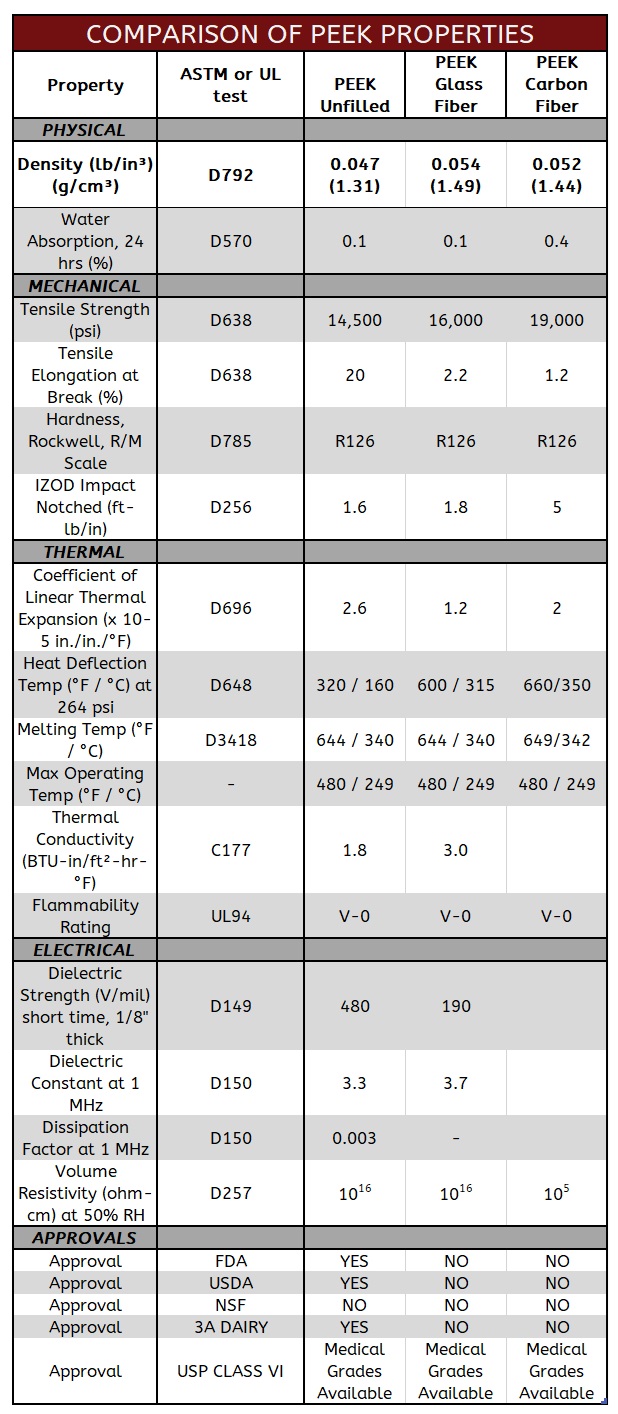The optimal balance of chemical, mechanical and thermal properties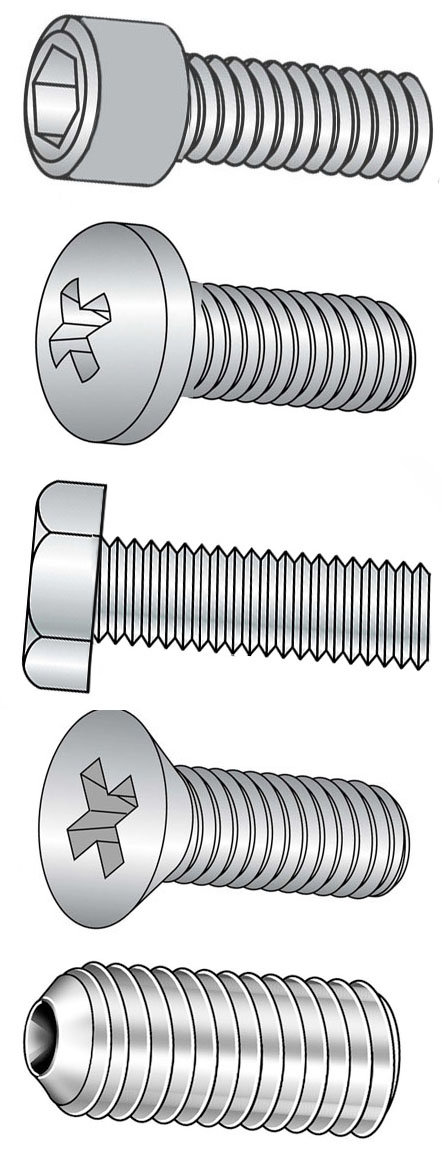
- Excellent strength, and stiffness up to 500°F (260°C)
- Low coefficient of friction and high wear resistance
- Chemically resistant to common chemicals
- Low out gassing, low particle generation and inherent purity
- Unique physical, thermal & electrical properties
- PEEK material datasheet
PEEK screws (chemically known as Polyetheretherketone) offer a unique combination of properties for some of the most extreme applications. PEEK is classified as semicrystalline thermoplastic and high purity polymer, offering excellent mechanical strength and chemical resistance at high temperatures. PEEK screws offer a high strength alternative to PTFE fluoropolymers.
Key Benefits
- Excellent resistance to thermal degradation (chemical decomposition caused by heat).
- Chemically resistance to many oils, alcohols, solvents, and organics as well as harsh acids and bases in low concentrations and temperatures.
- Hydrolysis resistance provides PEEK ability to retain all physical properties when continuously exposed to water or steam at high temperatures and pressures, as well as offer very low moisture absorption.
- Outstanding creep resistance allows PEEK screws to sustain large stresses over long service life.
- Ability to withstand frequent sterilization processes.
- V-0 flammability rating with low smoke and toxic gas emission when exposed to flame.
- Good wear and abrasion resistance.
- Electrical properties are maintained over a wide frequency and temperature range.
- Radiation resistance allows PEEK to be used in or be repeatedly sterilized by, high doses of ionizing radiation.
Options for High Strength
Depending on the application, PEEK screws can be reinforced with glass or carbon fibers for improved strength and stiffness properties. Reinforced PEEK screws offer greater mechanical robustness especially in applications beyond 350°F (175°C).
Applications
- Viewed by the medical community as an advanced biomaterial, PEEK screws are used in medical implants and are compatible with a high-resolution magnetic resonance imaging (MRI).
- PEEK screws are one of the few plastics compatible with ultra-high vacuum (UHV) which is necessary for many analytic techniques and particle accelerators.
- Chemical processing and pharmaceutical applications depend on PEEK for it’s chemical resistance, high purity and ability to withstand sterilization processes.
- PEEK screws are used in many electronics from cell phones to circuit boards for their lightweight strength and reduced noise, vibration and harshness (NVH).
Screws made from customer specified PEEK grades are available upon request. See our online store (right side) for common PEEK screws or contact us for specialty or quantity requests.
Screw Types: Flat Head Screws, Hex Cap Screws, Pan Head Screws, Set Screws, Socket Head Cap Screws
Common PEEK Screw Grades
PEEK 100% / Unfilled
PEEK, with no fillers is unreinforced and 100% polymer. Even without glass or carbon fiber reinforcement, this one of the strongest polymers we offer and well suited for a variety of applications including FDA food contact and other applications requiring high purity.
PEEK Glass Fiber Reinforced
Offers the same chemical resistance as natural PEEK, but also offers increased strength by about 10%. Note, elongation will greatly decrease due to the glass fibers. ***See Note Below.
PEEK Carbon Fiber Reinforced
Provides approximately a 30% increase in strength of pure PEEK. PEEK fasteners with carbon fiber have low elongation and will be electrically conductive. ***See Note Below.
***NOTE: The strength data listed for both PEEK Glass Fiber and PEEK Carbon Fiber fasteners may be significantly less than published values from polymer manufacturers. Normally published data is created from perfect injection molded tensile samples. As most fiber reinforced fasteners are machined from extruded bar stock (not injection molded), fibers are cut when manufactured, sharp angles of fasteners create stress risers, and the orientation of the fibers within the extruded bar are typically perpendicular to the length of the fastener.
As a result, the published values from the polymer manufacturers of these materials are much higher than the ACTUAL values you may expect. The values we have noted on this site are what one might TYPICALLY see in use when the fasteners are machined from bar stock.
Mechanical Properties of PEEK
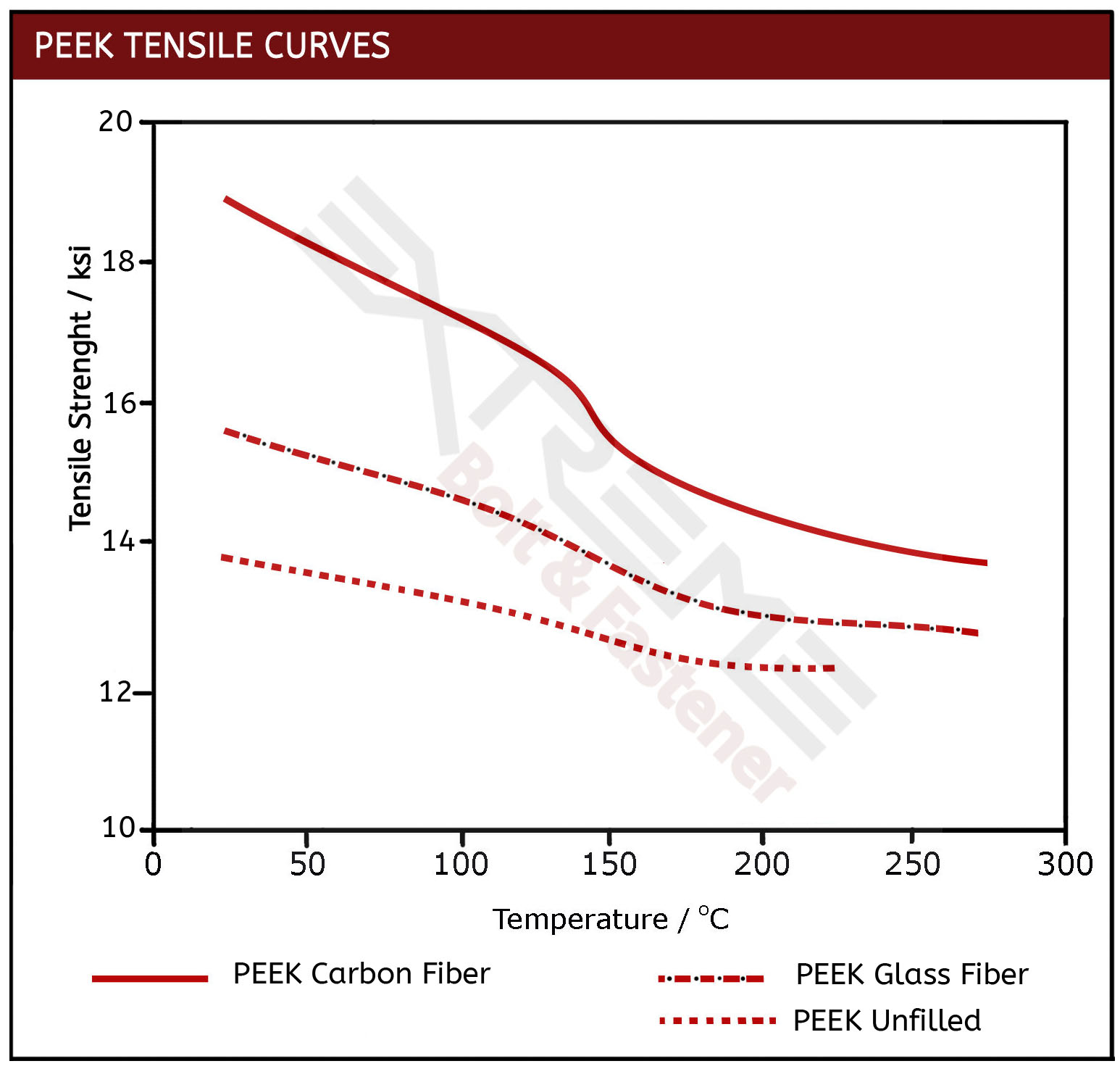 |
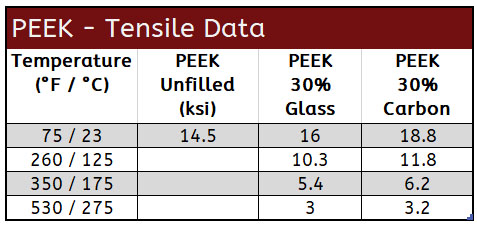 |
Chemical Resistance of PEEK / Victrex® Screws
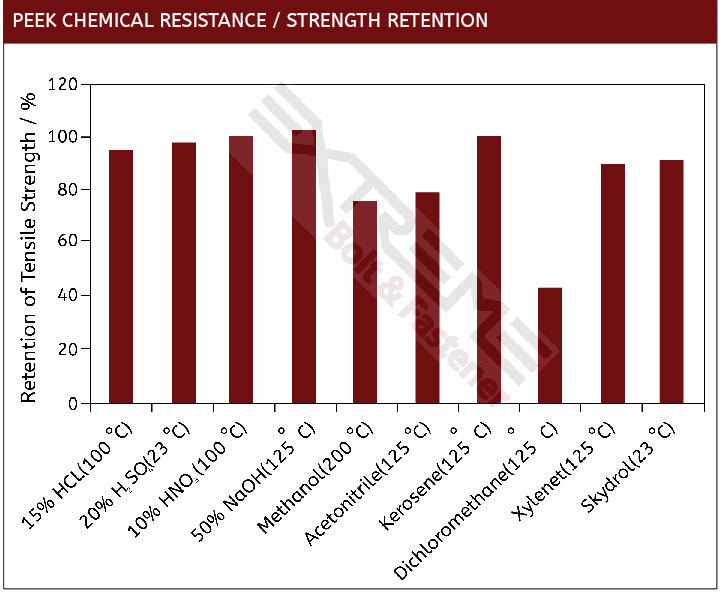
PEEK Properties
